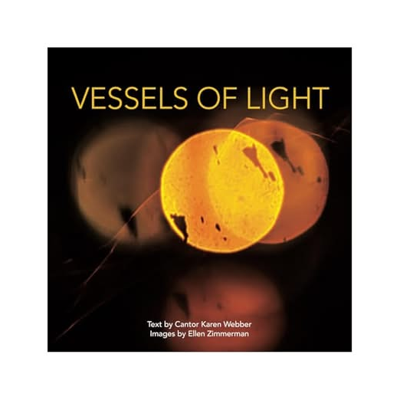- Early Explorers: While Jews were involved in Arctic expeditions in the 19th century, they were not part of the "Heroic Age" of Antarctic exploration.
- Military & Scientific Presence: Following Operation High Jump in 1946, more Jewish personnel arrived. Today, Jewish researchers and staff work at various research stations.
- Religious Life & Observance: Observance is challenging due to 24-hour sunlight, making traditional Shabbat timing difficult (e.g., in 1995, a Seder was held at Scott Base). Lighting candles is usually prohibited at McMurdo.
- Tourism & Special Events: Specialized kosher tours have visited Antarctica. In 2004, a team of Israelis and Palestinians named a peak "The Mountain of Israeli-Palestinian Friendship".
- The "Coldest" Jews: Jewish staff have organized Hanukkah and Shabbat, sometimes with fire marshal supervision for candles, as noted by the Substack author at Substack.
- Cultural Moments: The Jewish Magazinereports on Rosh Hashanah celebrations and the playing of dreidel at research stations.
We heard all about her, saw her mansion and cemetery. She truly made a positive impact on the town. No jews there now, though. Thanks for your info
On Monday, January 26, 2026, 1:21 PM, RABBI DR ARTHUR SEGAL <rabbiasegal@aol.com> wrote:
SHALOM and BLESSINGS:RABBI DR ARTHUR SEGAL,retiredWWW.JEWISHSPIRITUALRENEWAL.COM/bookshttps://www.facebook.com/arthur.l.segalOn Monday, January 26, 2026 at 11:20:01 AM EST, RABBI DR ARTHUR SEGAL <rabbiasegal@aol.com> wrote:hi. punta arenas, at the tip of chile, has an interesting jewish history as well as a significant croatian history.Punta Arenas, the southernmost city in Chile, has a small but historically significant Jewish presence, most notably linked to 19th-century Eastern European immigrants like philanthropist Sara Braun, who helped shape the region. While the main Jewish community resides in Santiago, Punta Arenas features a historic cemetery and a legacy of early Jewish pioneers. SARA'S MANSIONSARA BRAUN'S GRAVE AT THE PUBLIC CEMETERY IN PUNTA ARENAS. SAFE TRAVELS!
- Key Historical Figure: Sara Braun (1862–1955), a Latvian-born Jew, became one of Patagonia's most influential businesspeople after fleeing anti-Semitism in the Russian Empire. She donated the portico and walls of the Punta Arenas Municipal Cemetery, a major landmark.
- Jewish Heritage: The Punta Arenas Cemetery contains graves of early settlers, including some with both Jewish and Christian symbols, indicating the presence of Conversos or families that assimilated over generations.
- Modern Context: While the largest concentration of Jews is in Santiago (18,000–20,000 in Chile), Punta Arenas remains a site with, at times, a small Jewish presence or connection, including, historically, a brief, infamous post-WWII appearance by Nazi war criminal Walter Rauff.
- Cultural Legacy: The city's history includes stories of early 20th-century immigrants who, like the Brauns, contributed to the development of the region during the sheep farming boom.
SHALOM and BLESSINGS:RABBI DR ARTHUR SEGAL,retiredWWW.JEWISHSPIRITUALRENEWAL.COM/bookshttps://www.facebook.com/arthur.l.segalOn Sunday, January 25, 2026 at 04:32:58 PM EST, Lenette Goodman <lynngoodman13@yahoo.com> wrote:
For all you snow shovelers remember to bend your knees and be careful. Don't want any hurt backs.We are now in Chile and tomorrow and the next day we will be sailing around the Chilean fjords.We've seen lots of nature. It has been beautiful.Everybody be safeOn Sunday, January 25, 2026, 5:24 PM, Joan Levey <jlevey10@gmail.com> wrote:
That's a lot of snow. Hope you don't need to go anywhere and are hunkered down. I saw Boston on TV. Even there they can't keep the roads cleared.Lynn, are you still out cruising? Good timing to be out of this weather.Please share with us your snow pictures. I would love to see them.On Sun, Jan 25, 2026 at 2:36 PM Ruth Milesky <rmilesky@verizon.net> wrote:Snow coming down in Greater Boston. Expecting 18-24" and snowing through tomorrow.On Sunday, January 25, 2026, 2:04 PM, Lenette Goodman <lynngoodman13@yahoo.com> wrote:
Beautiful and peaceful !!!!!watch your backs shoveling!!! In New York, my daughter said it's snowing sidewaysOn Sunday, January 25, 2026, 2:51 PM, Rochelle Lepor <rolepor@gmail.com> wrote:
What a beautiful and peaceful photoRoOn Sun, Jan 25, 2026 at 12:50 PM Joan Levey <jlevey10@gmail.com> wrote:I snapped a picture from my door before the snow gets shoveled. I think we got about 6 inches before it started to sleet.On Sun, Jan 25, 2026 at 12:41 PM Stephen Shapiro <steveshapiro@att.net> wrote:Nice memory Joan. I remember when we went the Jr Club went to Glen Echo.On Jan 25, 2026, at 11:00 AM, Joan Levey <jlevey10@gmail.com> wrote:I remember the cousins club. I remember being in a room in the basement and trying to elect officers. Luckily I was the youngest so exempt from the talent show. I do remember the accordion and Lee playing Exodus on the piano.Lee, glad you have found your voice again.On Sun, Jan 25, 2026 at 9:47 AM Lenette Goodman <lynngoodman13@yahoo.com> wrote:Lucky you. Do you remember it or what anybody did.So funny how when i think of some cousins, I think of the talent they shared. I had no talent. It was horrible.On Sunday, January 25, 2026, 11:40 AM, RABBI DR ARTHUR SEGAL <rabbiasegal@aol.com> wrote:
LEE ,YOU SING WONDERFULLY,' CONTINUED PRAYERS FOR SANDY!!!!!!!!!!!SHALOM and BLESSINGS:RABBI DR ARTHUR SEGAL,retiredOn Sunday, January 25, 2026 at 02:53:04 AM EST, Lee Shapiro <doclee1@gmail.com> wrote:Please, please, use earbuds or headphones unless you have good speakers. As bad as my singing might be under ideal conditions, it's even worse with tinny speakers!!!I could not find a karaoke track for "How Can I Leave You Again" and it is difficult to stay on tune without a music track.As some background, when I was a teen, a group of us got together and sang folk songs. Someone told me that my voice was terrible and I should be a "listener". For the next 50 years or so, I would not sing in front of anyone--not even the Happy Birthday song. In the last ten years, however, I have been brave enough to record songs and share them.So enjoy, or grimace as you listen! And remember--earbuds or headphones!PS: Sandy is still in the hospital. Still no answer as to why her oxygen level drops. It's not terrible while she's lying in bed, but when they had her take a few steps, it dropped to dangerously low levels.--Lee Shapiro











